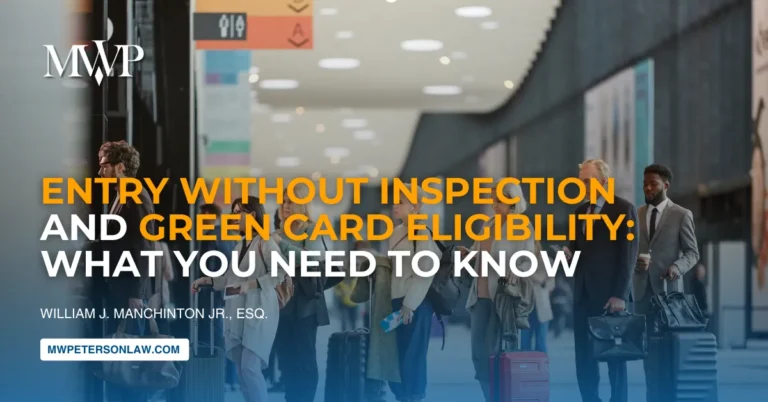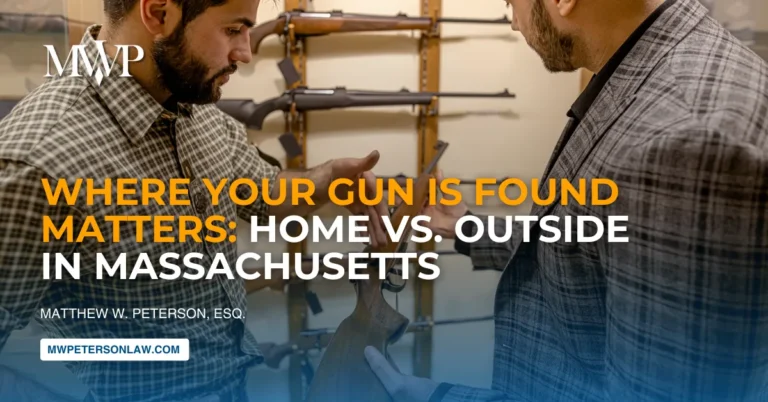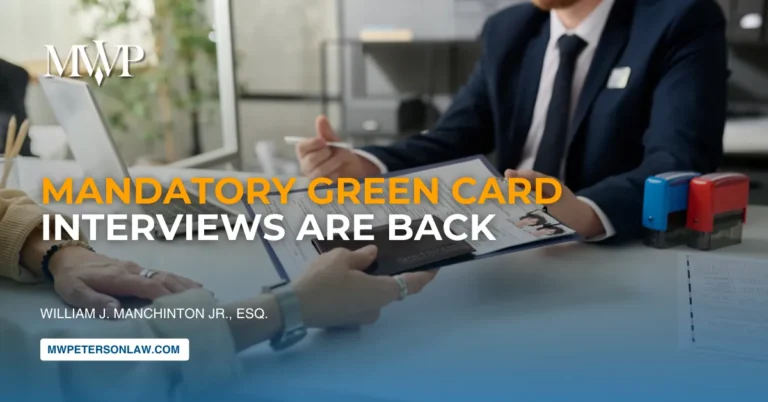Will you go to prison for drug trafficking charges means confronting far more than just prison time. The consequences ripple through every aspect of your life—from your ability to drive to work, to your professional license, to finding housing after serving your sentence. If you’re reading this because you or someone you care about is facing these charges, take a deep breath. Understanding what you’re up against is the first step in protecting your future.
Dangerousness Hearings: When You Can Be Held Without Bail
Before we discuss the penalties themselves, you need to know about a critical procedure that can happen at your very first court appearance. Under Massachusetts law, prosecutors can request what’s called a “dangerousness hearing.” This is a court proceeding where the Commonwealth argues that you should be held without bail while your case is pending.
At this hearing, prosecutors must prove by clear and convincing evidence that releasing you—even with strict conditions like GPS monitoring, curfews, or regular check-ins—would pose a danger to the community. If the judge agrees with the prosecution, you can be held without bail for up to 120 days in district court or 180 days in superior court. Drug trafficking charges, particularly those involving large quantities, frequently trigger these dangerousness motions.
This means you could spend months in jail before your trial even begins, unable to work, care for your family, or prepare your defense from home. Having an experienced attorney at your arraignment who can effectively oppose this motion is crucial.
Massachusetts Drug Trafficking Penalties by Weight
The penalties for drug trafficking in Massachusetts depend on two factors: the type of drug and the weight involved. Every trafficking conviction carries a mandatory minimum prison sentence, which means the judge must impose at least that amount of time—there’s no option for probation or a suspended sentence. Here’s what you’re facing:
MARIJUANA TRAFFICKING
Weight | Mandatory Minimum | Maximum Sentence |
50-100 pounds | 1 year | 15 years |
100-2,000 pounds | 3 years | 15 years |
2,000-10,000 pounds | 5 years | 15 years |
10,000+ pounds | 10 years | 15 years |
Despite marijuana’s legalization for personal use, trafficking large quantities remains a serious felony with harsh penalties.
COCAINE TRAFFICKING (Class B)
Weight | Mandatory Minimum | Maximum Sentence |
18-36 grams | 2 years | 15 years |
36-100 grams | 3.5 years | 20 years |
100-200 grams | 8 years | 20 years |
200+ grams | 12 years | 20 years |
HEROIN/OPIOID TRAFFICKING (Class A)
Weight | Mandatory Minimum | Maximum Sentence |
18-36 grams | 3.5 years | 20 years |
36-100 grams | 5 years | 20 years |
100-200 grams | 8 years | 20 years |
200+ grams | 12 years | 20 years |
This category includes heroin, morphine, opium, and their derivatives.
FENTANYL TRAFFICKING (Class A)
Weight | Mandatory Minimum | Maximum Sentence |
10-18 grams | 3.5 years | 20 years |
18-36 grams | 3.5 years | 20 years |
36-100 grams | 5 years | 20 years |
100-200 grams | 8 years | 20 years |
200+ grams | 12 years | 20 years |
Fentanyl is treated as a Class A drug but has a lower trafficking threshold due to its extreme potency. While other Class A drugs require 18 grams to trigger trafficking charges, fentanyl trafficking begins at just 10 grams—roughly the weight of two nickels. At 18 grams and above, fentanyl follows the same escalating penalty structure as heroin and other Class A opioids.
You'll Lose Your Driver's License for Five Years
Here’s something many people don’t realize until it’s too late: the Massachusetts Registry of Motor Vehicles is required by law to automatically suspend your driver’s license for five years if you’re convicted of drug trafficking. This happens regardless of whether your offense had anything to do with driving.
While Massachusetts repealed automatic license suspensions for most drug offenses back in 2016, lawmakers specifically kept the suspension in place for trafficking convictions. This means no driving to work, no driving your children to school, no driving to medical appointments—for five full years after your conviction. In a state where public transportation is limited outside of Boston, this consequence alone can devastate your ability to rebuild your life.
Your Professional License Is at Risk
If you hold a professional license—whether you’re a nurse, teacher, real estate agent, attorney, or any other state-regulated professional—a felony drug trafficking conviction puts your entire career in jeopardy. Most licensing boards in Massachusetts have the authority to suspend or revoke licenses based on felony convictions.
For nurses, the Board of Registration in Nursing considers felony convictions when determining whether you possess the “good moral character” required for licensure. Certain felony convictions can result in mandatory permanent ineligibility for initial licensure or revocation of existing licenses. Even if your license isn’t automatically revoked, you’ll likely face disciplinary proceedings that could result in suspension, probation, or permanent loss of your ability to practice.
Teachers face similar scrutiny from the Department of Education, which requires criminal background checks every three years. Real estate agents, financial professionals, healthcare workers—virtually every licensed profession faces potential license loss following a felony drug trafficking conviction.
The Long Shadow: Other Life-Altering Consequences
A felony conviction doesn’t end when you walk out of prison. It follows you for years, creating barriers that make it incredibly difficult to rebuild a normal life:
Employment: The vast majority of employers—80 percent as of 2018—conduct background checks on job candidates. Many have blanket policies automatically disqualifying anyone with a felony conviction, particularly for drug trafficking. Even employers willing to consider your application may be legally prohibited from hiring you for certain positions, especially those involving vulnerable populations or positions of trust.
Housing: Federal and state policies can permanently exclude people convicted of certain drug crimes from public housing and rental assistance programs. Private landlords frequently deny applications from individuals with felony convictions, making it extraordinarily difficult to find stable housing. This creates a cruel cycle—without stable housing, maintaining employment becomes nearly impossible.
Voting Rights: In Massachusetts, you cannot vote while incarcerated for a felony conviction. The good news is that your voting rights are automatically restored the moment you’re released from prison—you don’t need to complete parole or probation first.
Public Benefits: Federal law makes people with certain drug trafficking convictions ineligible for SNAP (food stamps) and TANF (cash assistance) benefits. When you’re already struggling to find work and housing because of your record, losing access to these basic safety net programs can push you toward homelessness.
Defense Strategies That Can Make a Difference
These consequences are severe, but remember: being charged is not the same as being convicted. Several defense strategies may help you avoid or minimize these outcomes:
Challenge illegal searches and seizures: If police violated your constitutional rights when obtaining evidence—searching your car without probable cause, entering your home without a valid warrant, or conducting an illegal stop—that evidence may be suppressed. Without the evidence, prosecutors often cannot prove their case, and charges may be dismissed entirely.
Question the accuracy of drug lab testing: Massachusetts drug labs must test and certify both the substance and its weight. These labs have faced scandals involving contamination, improper procedures, and even deliberate falsification of results. Your attorney should scrutinize every step of the testing process, from the chain of custody to the qualifications of the analysts.
Argue lack of intent to distribute: Prosecutors must prove you intended to distribute the drugs, not just possess them. While large quantities create a strong inference of intent, the amount alone doesn’t automatically prove trafficking. Your attorney can challenge this element by presenting alternative explanations for the quantity or demonstrating problems with the prosecution’s case.
Negotiate reduced charges: An experienced attorney may be able to negotiate with prosecutors to reduce charges below the trafficking threshold. This can mean the difference between a mandatory prison sentence and eligibility for probation, treatment programs, or alternative sentencing. It can also mean keeping your driver’s license and protecting your professional license.
You Don't Have to Face This Alone
If you’re facing drug trafficking charges—or even suspect charges may be coming—contact an experienced Boston criminal defense attorney immediately. These cases move quickly. The Commonwealth may file a dangerousness motion at your arraignment, seeking to hold you without bail. Having an attorney who knows you, understands your ties to the community, and can present a compelling argument for your release can be the difference between going home to prepare your defense and spending months in jail awaiting trial.
Your attorney will examine every aspect of the Commonwealth’s case, looking for weaknesses in the evidence, violations of your rights, or opportunities for negotiation. They’ll fight to protect not just your freedom, but your ability to drive, work in your profession, and rebuild your life.
Being charged with a serious crime is terrifying. The penalties outlined above are harsh. But remember: you have rights, you have options, and with skilled legal representation, many people facing these charges achieve outcomes far better than the worst-case scenarios described here. Don’t give up before the fight has even begun.











